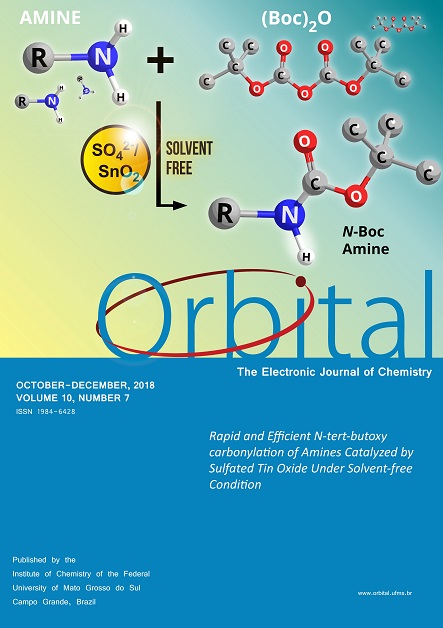Factorial Design and Evaluation of the Influence of Cu2+ Salts Counterions on the Synthesis of MOF 199
Published 2018-12-25
Keywords
- counterion,
- Cu2 ion,
- factorial design,
- metalorganic framework,
- MOF-199
- trimesic acid ...More
How to Cite
Abstract
This work aimed to evaluate the influence of Cu2+ salts counterions (acetate and chloride) and the synthesis conditions on the reaction yield of MOF-199, a well-known metalorganic framework. Therefore, a factorial design was performed for this purpose in which three reaction parameters were analyzed: temperature, time and metal concentration, varying in two levels (minimum and maximum), resulting in a combinatorial analysis, where each experiment consisted in a different configuration of the factors at their respective levels, which led to a batch of 23 = 8 experiments, for each Cu2+ salt. Syntheses with average values of each parameter were also performed, totalizing 9 experiments for each counterion. Reaction yield was the factorial design response variable and the products were characterized by infrared vibrational spectroscopy, thermogravimetric analysis and powder X-ray diffraction. Analytical techniques confirmed the production of MOF-199 and the proposed statistic model of the response variable showed good agreement with the experimental values. In addition, the temperature parameter was the only significant variable on the reaction yields for the syntheses with Cu2+ chloride. The syntheses carried out with Cu2+ acetate provided higher yields compared to Cu2+ chloride, however the evaluated synthesis conditions were not significant.

